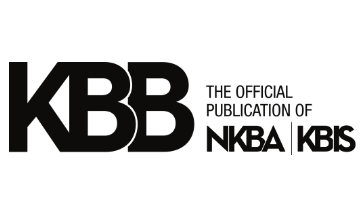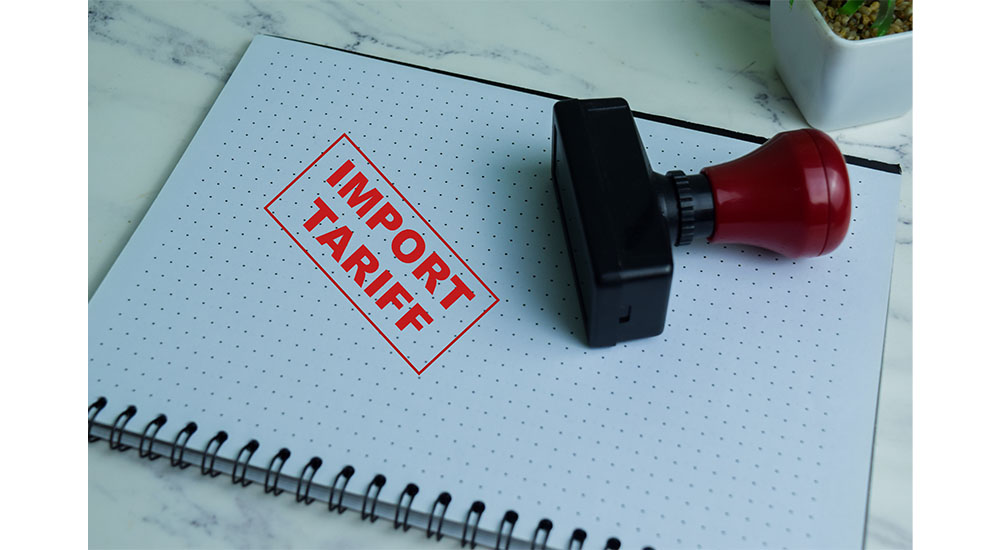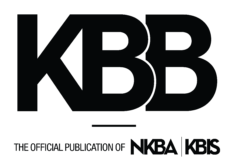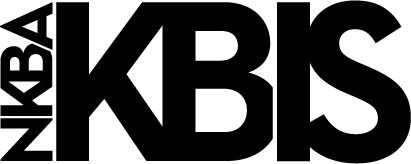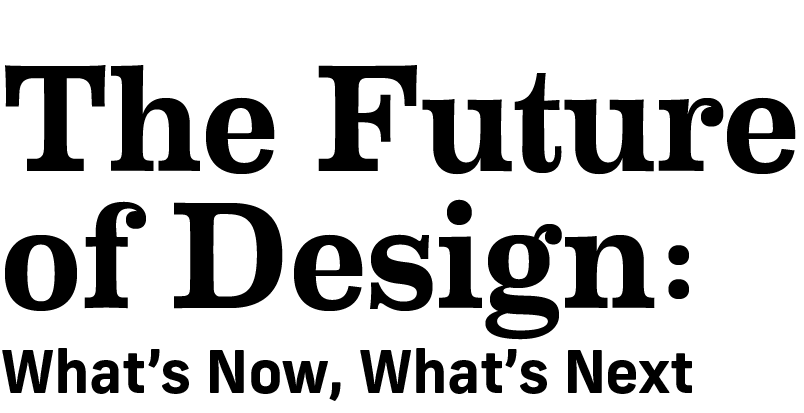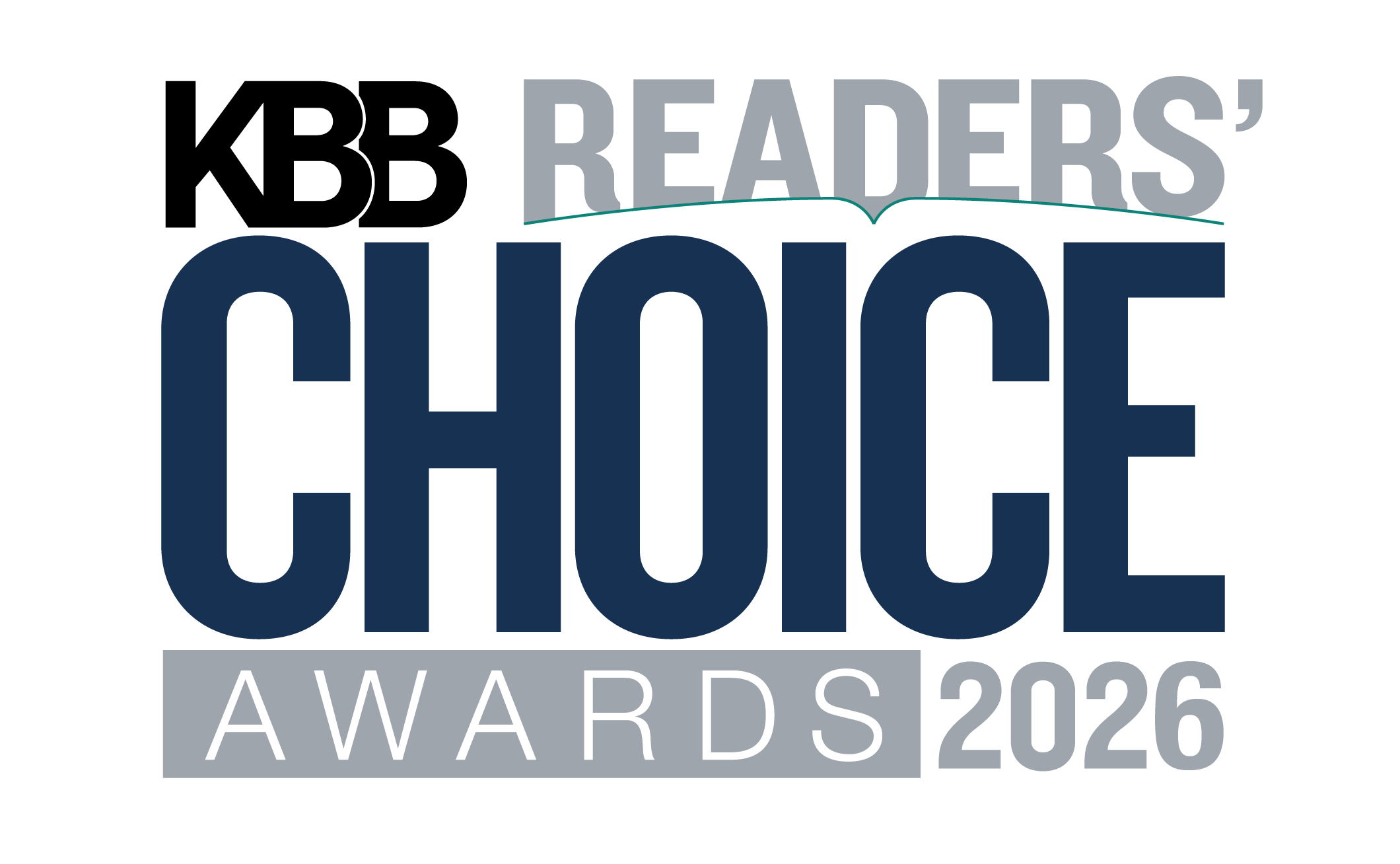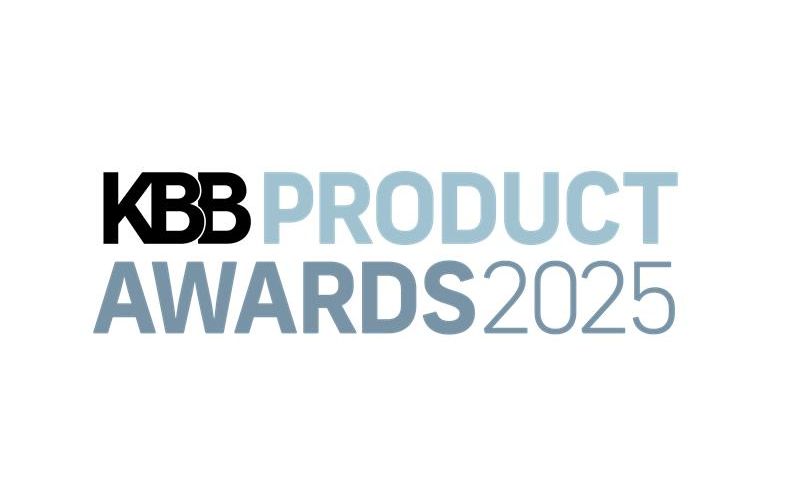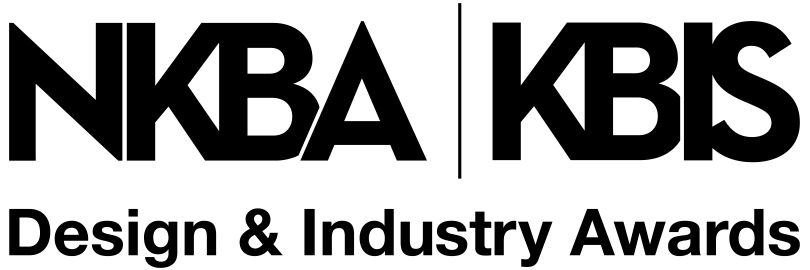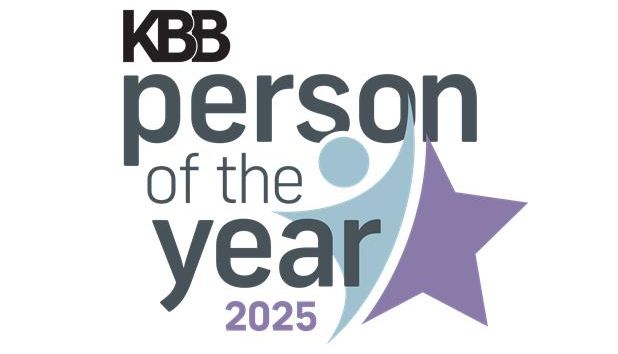Tariff Turmoil in Kitchen, Bath and Design/Construction Sectors
With “Liberation Day” now behind us, the federal tariff situation has come into sharper focus after weeks of destabilizing speculation and rumors. A levy of 10% on all countries and additional specific reciprocal tariffs on the so-called “worst offenders” has been imposed, and reactions have been intense around the world.
But wait! On April 9, the administration paused most reciprocal tariffs – save for China, which is currently facing a 125% levy – for a period of 90 days. At 2:10PM EST, Goldman Sacks announced that as a result of this pause, it was no longer forecasting a recession, saying “We are reverting to our previous non-recession baseline forecast with G.D.P. growth of 0.5% and a 45% probability of recession.”
But wait – again! Barely a month after its initial imposition of tariffs on China, a temporary “truce” in the Trump-triggered trade war has been announced. A joint statement on May 12 said that for a 90-day period, the U.S. will cut tariffs on Chinese goods to 30% from as high as 145%. China said its tariffs on U.S. goods will fall to 10% from 125%.
The full impact on the complicated tariffs and other trade penalties enacted by Washington and Beijing remains unclear. And much depends on whether they will find ways to bridge long-standing differences during the 90-day suspension.
Whether looking to the economic model of the late 1800s in the 21st century is fore- or short-sighted, we shall have to wait and see. In the meantime, here are some thoughts from kitchen & bath brands and organizations and financial institutions on the situation.
This is a developing story and will be updated.
Tariff Impact on Small Businesses in the Construction Industries
Ben Johnston, COO of small-business lender Kapitus, sees that in the short- to medium-term, the tariffs are likely to drive inflation significantly higher and cause significant disruption to the global supply chain, threatening many U.S. jobs at manufacturers, wholesalers and retailers who rely on the global supply chain to source the components, raw materials and finished products they sell.
His advice to small business owners in the construction industries:
“Business owners should be judicious in their expansion plans. In uncertain economic times, it is important to focus on goods and services that provide a demonstrated value to customers. Before launching a new product or opening a new facility, it is important to thoroughly test the market to determine demand and pricing power. Make sure that anticipated sales will more than cover anticipated expenses and be sure to have access to sufficient capital to cover several months of operating expense in case anticipated sales take longer than expected to materialize.
“For business owners who borrow money to purchase inventory, acquire equipment and fund expansion, it is important to maintain multiple financing relationships. Banks have been pulling back from lending to small businesses over the past several years, and having contacts at both bank and non-bank lending institutions can help secure the fastest and lowest-cost capital when borrowing is required.”
Tariff Impact on Cabinets
The American Kitchen Cabinet Alliance released this press release on April 30, 2025:
‘As part of the U.S. Department of Commerce’s Section 232 investigation, the American Kitchen Cabinet Alliance (AKCA) recently submitted formal comments to the U.S. Department of Commerce as part of the Section 232 investigation on Timber, Lumber and Derivatives (including cabinets). Over the past decade, unfairly traded cabinet imports many of them sold at prices that are often over 60% below that of the domestic market are flooding into the United States.
President Donald J. Trump’s launched the Section 232 investigation on March 1, 2025, aimed at protecting national and economic security. Cabinet manufacturing plays a critical role in housing infrastructure, supply chain resilience, and military readiness. The industry can also respond in times of natural disaster and crisis. The U.S. kitchen cabinet industry supports more than 250,000 American jobs across the nation and is more than $12 billion industry.
“American cabinet manufacturing plants like mine cannot compete with foreign countries flooding the market with unfairly traded cabinets which has resulted in an estimated $6.5 billion in lost revenue to the domestic industry over the last five years.” remarked Perry Miller, President of Kountry Wood Products. “Foreign imports primarily from Cambodia, Malaysia, Mexico, Thailand, Vietnam that are heavily subsidized are destroying American cabinet jobs. In 2024 alone, imports totaled $3.7 billion and many cabinet products are being moved through illegal transshipment routes.”
“The domestic cabinet industry is on the brink of collapse and we applaud President Trump for launching the Section 232 investigation to save American manufacturing jobs,” said Stephen Wellborn, co-owner at Wellborn Cabinet. “We are asking for a Section 232 tariff of at least 60%, to level the playing field and stop the cheating as we seek to protect over 250,000 American jobs.”
The AKCA’s submission stresses that to be effective, no exceptions or exemptions should be granted for any kitchen and bathroom cabinetry or component parts thereof. The AKCA believes that a strong Section 232 tariff will help revitalize American manufacturing, protect U.S. timber and lumber industries, and restore confidence in domestic investment.
When it comes to the cabinet industry, AKCA members have sufficient domestic capacity to meet national demand. In fact, the industry stands ready to rapidly ramp up production if imports are fairly regulated. Without swift and decisive action, the nation risks losing its cabinet manufacturing sector in the same manner the country lost furniture and textiles.’
Tariff Impact on Fixtures & Fittings
For 40 years, Americh has been designing and manufacturing bathtubs for residential and commercial markets in its facilities in North Hollywood, Calif. and Charlotte, N.C. Dino Pacifici, vice president of Americh, tells KBB, “We cannot be certain how the tariffs will affect pricing in relation to U.S.-manufactured items, but we feel it is very important to try and hold off the pressure to increase pricing during this inflationary period. We are not sure how long we will maintain our 2024 pricing and hope customers will value and appreciate the efforts to support USA manufacturing.”
Jean-Michel Lebeau, CEO of BainUltra tells KBB, “I feel that the economic situation as a whole is fairly fragile right now. Most industry players are sitting on their hands, hoping for a swift resolution. I feel we may see some stability in the short term – but it’s mostly people hanging in there, awaiting clarity. If nothing changes in the medium term – two to three months – I think we’ll witness a drastic uptick in prices from all those who delayed action, followed by an inevitable reduction in sales volume.
“BainUltra stands in a strong position amidst this chaos. Not only are we currently protected under the USMCA agreement, but our sourcing strategies have enabled us to minimize the effects of tariffs. I’m not saying they cannot impact us – they could easily – but so far, we’ve been dodging bullets on a weekly basis. I’m very proud of our team and our partners; without them, this resilience would be impossible.
“Our clients have demonstrated extraordinary steadfastness. They’ve kept their word, held the fort strongly, and continued supporting us – something I’m deeply grateful for.
“Every week is different; a few tweets can change the world nowadays. I believe that in business, as in life, hope is not a strategy – preparation is.
“When uncertainty reigns, decisive action separates leaders from followers. I remain focused on what truly matters: protecting our prices, safeguarding our customers and partners, and preserving jobs across both borders.”
Kerry Stackpole, IOM FASAE CAE, CEO/executive director of Plumbing Manufacturers International, testified in person before the International Trade Commission in opposition to tariff proposals. Below, he shares with KBB an overview of PMI’s overall opposition to tariffs and the pro-active steps the association is taking to address the wide variety of proposed tariffs.
PMI has actively opposed Section 301 tariffs since they were initiated under the first Trump administration. PMI submitted testimony, actively lobbies on Capitol Hill and continues to be active in the Americans for Free Trade, a coalition of more than 150 trade associations, to address the issue. Dozens of plumbing products have been impacted by the 25% China tariff. They continue to serve as a hidden tax on U.S. consumers, hurting domestic producers, retailers and customers alike, and having a negative impact on the U.S. economy.
PMI is also fully engaged to ensure the threat of tariffs on our Canadian and Mexican trading partners are eliminated. We are continuing to reach out to the Trump administration, members of Congress and Mexico and Canada government officials on the negative impact the U.S. tariffs and any proposed Canada or Mexico retaliatory tariffs will have on plumbing manufacturers, the home building sector economy and the inflationary impact on consumers. PMI is asking for the administration to exempt new tariffs on building products, including plumbing fixtures and fittings.
Lastly, PMI has requested the Administration to refrain from imposing tariffs on imported copper and copper alloys and copper derivatives in the building materials sector. We urge the administration to implement balanced trade policies that safeguard our national interests, hold our trading partners accountable, reinforce supply chains, enhance U.S. competitiveness and protect American families from inflationary price increases on building materials and household appliances, including plumbing products. It is vital for the administration to differentiate between trade cheaters and trusted allies that reliably work with us to advance our national and economic security.
Tariff Impact on Home Appliances
Andrew de Lara, spokesperson, BSH (home appliances division of the Bosch Group – and home of the Bosch, Thermador and Gaggenau brands in North America) notes:
“BSH in North America – through its Bosch, Thermador and Gaggenau brands – is focusing on the long-term growth potential of the North American market and continues to further expand its business in the region. While we prioritize a local-for-local strategy, we work in an international production network, are represented globally and continuously review our flows of goods against the backdrop of constantly changing trade legislation.
“The additional tariffs announced by the U.S. are a challenge for the entire industry, and we are closely monitoring current developments and continuously analyze possible new business opportunities and challenges.
“In the United States market, we announced a price adjustment to partners at the end of March – to take effect on July 1, 2025. Per the company’s standard processes, any further details will be communicated at the appropriate times.”
Devoree Axelrod, general manager of appliance retailer AjMadison, shared her thoughts with KBB.
She said, “We understand the concerns regarding potential price increases on appliances due to upcoming tariffs. While the full impact of these tariffs is still being assessed and much remains unknown, we do know that several manufacturers have already indicated planned price increases. To proactively protect from these anticipated increases, both from tariffs and manufacturer adjustments, we are advising consumers to make their purchases at this time. We would be happy to bring in and store their orders for a nominal fee, guaranteeing the current price.
“With many appliance brands relying on foreign manufacturing for products and parts, price increases across the board are inevitable. While value brands may experience the most significant price shifts, even luxury American-made appliances incorporate foreign components to some degree.”
Small businesses that offer small kitchen appliances are facing big concerns triggered by the tariffs. CNBC reported on Suvie, a smart countertop cooking/cooling “kitchen robot” with an enthusiastic user following. With the product manufactured in China, the Cambridge-Mass.-based company is actively investigating alternative sites for production.
Suvie founder Robin Liss is taking action. “I’m going to run out of appliances,” Liss said, ahead of a two-week reconnaissance trip to Taiwan and Vietnam. “I’ve got to figure this out.”
Tariff Impact on Surfacing Products
Ted Acworth, CEO and founder of Artaic, shares with KBB his stance on the issue. “We’re seeing the current state of the industry as an opportunity to reinforce our long-term strategy of tech-enabled, U.S.-based manufacturing that ultimately benefits our clients. For 18 years now, we’ve been building U.S. design and production capability. Artaic designs and assembles mosaics in Boston, Massachusetts, from tile materials procured worldwide, and we ship our product worldwide.
“Since 2020, we have invested in domestic inventory, scaling warehouse space, building stock of in-demand color palettes, and developing a proprietary planning algorithm that enables us to anticipate material needs with accuracy. This has not only reduced lead times and waste, but also allowed us to grow cost-effective programs like Artaic’s Designs on Demand. It’s this blend of innovation, flexibility, and U.S. production that lets us meet evolving market conditions while staying true to our mission of making mosaic art more accessible.
“The majority of our mosaics are designed using our standard vitreous glass tile, warehoused right here in Boston. Rather than applying blanket price increases, we’re taking a project-by-project approach. For projects that require internationally sourced materials, such as specialty raw materials like stone and glazed porcelain, we have developed a responsive model that accounts for these shifts without compromising on design or delivery. This model calculates tariff surcharges based solely on the actual materials affected and reconciles final costs transparently.”
Tariff Impact on Lighting Products
Laurie Gross, interim president and CEO of the American Lighting Association, released a statement:
The American Lighting Association strongly opposes the administration’s decision to impose 25% tariffs on imports from Canada and Mexico, as well as the additional 10% tariff on Chinese imports, set to take effect this week. These tariffs will significantly impact lighting manufacturers, retailers and consumers, driving up costs across the supply chain and reducing competitiveness in the global market. Many U.S. lighting and ceiling fan businesses are small, family-owned companies that operate on tight margins. These tariffs will make it harder for them to compete, leading to potential job losses and reduced investment in domestic operations.
Canada and Mexico are key trade partners for the U.S. lighting industry, supplying essential materials and finished products that keep prices stable and businesses thriving. Imposing tariffs on these countries will disrupt supply chains, increase costs for American manufacturers, and ultimately lead to higher prices for consumers.
Our ALA Canadian members do a significant amount of business with American manufacturers, and these tariffs will have a negative impact on their business as well as the Canadian lighting manufacturers that sell to many of our lighting showroom members. Additionally, with a new 10% tariff on Chinese imports, many lighting products and components that are difficult to source elsewhere will become even more expensive, further straining the industry. This new 10% tariffs comes in addition to the already enacted 10% China tariffs ALA reported on here – for a total 20% increase over the past month.
ALA has consistently supported fair trade policies that strengthen American businesses without imposing undue burdens on manufacturers, retailers and consumers. We previously urged the administration to extend the suspension of the Canada and Mexico tariffs in a statement here. Tariffs act as taxes on American businesses and households, making it more difficult for lighting companies to provide affordable, high-quality products. Rather than broad tariff increases that strain key industries, the administration should pursue targeted trade negotiations that address national security concerns without disrupting economic stability.
Canada enacting reciprocal tariffs in response has added another layer of costs and complexity to our members businesses. To avoid a further escalation, all parties should return to the negotiating table to solve these trade disagreements before further economic damage is done.
We urge the administration to reconsider these tariffs and engage in meaningful discussions with Canada, Mexico and China to find solutions that protect both national security and economic prosperity. ALA will continue advocating for policies that support a stable, predictable trade environment and ensure that our industry remains strong and competitive. ALA will continue to keep members updated about the potential opportunity for waivers on lighting products and is working closely with our industry partners on communicating the need to roll back these tariffs immediately.
In a communication to showrooms, Innovations Lighting president Gregory Mazza wrote, “Let me be clear: Innovations Lighting is here for you. We are working tirelessly and creatively behind the scenes – in what I can only describe as daily ‘war room’ strategy sessions – with government contacts, financial advisors, and our internal executive team to chart the most stable and responsible course forward. What we are choosing to do right now is not to react, but to lead with patience, poise, and purpose.”
He added, “The current news around tariffs has undoubtedly stirred concern throughout our industry. We understand the questions you may have, the strain it could put on your business, and the anxiety it brings to planning ahead…We’ve taken the deliberate stance to pause – not out of hesitation or fear – but out of confidence that this moment will pass and resolve. Based on my ongoing conversations with highly informed individuals in government and finance, I believe there is a strong likelihood of resolution between China and the U.S. by June…Until then, our inventory is fortified, and we are not raising prices or inflating margins in anticipation of something that may never materialize.
“[The company will be acting] with transparency, respect, and care. That may include price adjustments or program changes – but not until we absolutely have no choice but to do so. Any decisions made in the future will be measured and communicated with the same clarity and consideration you’ve come to expect from us.
“You are not just our customer — you are part of the Innovations family. Our success is your success, and vice versa. We are making every effort – from tightening our own belts, absorbing what we can internally, and holding our ground – because we believe that responsible partnership means protecting each other in times like these.”
Tariff Impact on Design Services
The Q2 2025 Houzz U.S. Renovation Barometer indicates that 66% of design firms surveyed see tariffs will heavily impact input costs, with 53% anticipating supply chain disruptions and 50% predicting reduced client budgets. Businesses in the design sector anticipate tariffs to impact appliances (65%), cabinetry (58%), lighting fixtures (58%), indoor furniture (58%) and outdoor furniture (48%). Of the 67% of design firms that have a mitigation strategy in place, 48% of them are likely to pass increased costs on to their clients.
Tariff Impact on Home Building
For years, the National Association of Home Builders has been leading the fight against tariffs because of their detrimental effect on housing affordability. NAHB has taken several actions to roll back tariffs and to boost domestic production of softwood lumber.
On March 5, NAHB Chairman Buddy Hughes met with U.S. Trade Representative Jamieson Greer to discuss how tariffs on building materials will drive up the cost to construct homes and harm housing affordability. The day before, Hughes spoke on the same topic while testifying before the House Financial Services Subcommittee on Housing and Insurance regarding the need to increase America’s housing supply.
Tariffs on building materials act as a tax on American builders, home buyers and consumers. Builders estimate an average cost increase of $9,200 per home due to recent tariff actions, according to the March 2025 NAHB/Wells Fargo Housing Market Index.
Of course, the effects of the tariffs on the housing industry go far beyond Canadian lumber. For example, 70% of the imports of gypsum, which is used to make drywall, comes from Mexico. The U.S. also imports nearly $500 million worth of gas ranges from Mexico annually.
Costs will also rise for steel, aluminum, copper, home appliances and scores of other building materials sourced outside of the U.S. NAHB estimates that approximately 7.3% of all goods used in new residential construction originated from a foreign nation in 2024.
The tariffs are not only expected to raise the cost of building materials – which are up 34% since December 2020, far higher than the rate of inflation – but also wreak havoc on the building material supply chain. In turn, this will put even more upward price pressure on building materials.
Moving forward, NAHB will continue working with all relevant stakeholders to roll back tariffs on building materials, boost sawmill production and increase the domestic supply of timber from federally owned lands in an environmentally responsible manner to help fix building material supply chains and ease costs.
On April 8, NAHB posted this update on the tariff situation:
Current countervailing (anti-subsidy) and anti-dumping duties on Canadian lumber stand at 14.5%, but the Commerce Department conducts annual reviews on these rates and has released a preliminary determination to more than double this levy to 34.5%. The official determination should be released in the Federal Register this week, and a final review will be published in August or September. The higher rates will take effect then.
The countervailing and anti-dumping duties on Canadian lumber stem from a trade dispute with our northern neighbor that has been ongoing for decades. These duties are completely separate from the global reciprocal tariffs announced by President Trump last week. When the president made his announcement, NAHB scored an important win when Trump chose to continue current exemptions for Canadian and Mexican products, including a specific exemption for lumber from any new tariffs at this time.
It’s clear we are not out of the woods yet on the possibility that Canadian lumber tariffs could run even higher than 34.5% later this year. The White House issued an executive order in March commanding the Commerce Department to investigate the national security impacts of imports of timber and lumber.
NAHB filed a comment letter on March 31 with the Department of Commerce to argue that housing is a critical component of national security and that no further lumber tariffs should be imposed in the name of national security.
The worst outcome from the investigation is that the U.S. imposes an additional tariff on top of this 34% duty tentatively slated to go into effect this fall.
For now, Canadian lumber tariffs stand at 14.5%, but members should be forewarned to expect higher tariffs later this year and plan accordingly.
NAHB will continue to urge the White House to roll back tariffs on lumber and other building materials and remains focused on improving building material supply chains and easing costs for our members.
According to the Houzz U.S. Renovation Barometer, construction businesses are concerned about tariffs on cabinetry (66%), appliances (60%), plumbing fixtures (58%), lighting fixtures (53%) and windows (44%). Nearly 80% of construction business have a mitigation strategy in place; for 68% of those, the plan is to pass increased costs on to their clients.
Tariff Impact on Home Furnishings
Coming off this year’s spring High Point Market, the publisher of Casual News Now, Rick Harrison, shared some sobering insights in a recent note in which he writes, “The stories I began to hear were about companies in distress, and the more exposed to China, the greater the distress. It became clear that there were already zombies in our midst. Smaller companies that were still walking, but already dead. They can’t accept new inventory waiting at the port, because it doubled in price while it was on the water. They just can’t afford it. New orders have gone to zero. They’ll sell their pre-tariff inventory and they’re done.
“Larger China-centric companies with a stronger cash position are playing a waiting game. They’re parking inventory at the ports so tariffs can be postponed. They’re pushing containers to Canada to warehouse and wait out the storm. They’re hoping this is all settled by the summer markets so they can get back to business. I’ve seldom seen wishful thinking posing as strategy result in a happy ending. Translation: zombie adjacent.”
Harrison’s complete observations are well worth a read; see the entire piece here.
Furnishings leader MillerKnoll will implement a 4.5% list price increase on June 2, it said in its third-quarter earnings call. The increase responds to higher steel tariffs already in place, as well as the newly-announced reciprocal tariffs. It’s also aimed at dealing with other inflationary pressures, the company said.
“In addition, we will partner with suppliers, leverage value engineering and available flexibility within our supply chain and manufacturing footprint to offset cost impacts wherever possible,” said CEO Andi Owen. “And we will also consider incremental price surcharges if necessary to manage this period of volatility.”
“It would be wrong to think that the price increase is squarely aimed as a response to tariffs,” said Jeff Stutz, CFO. “It’s in part that, but I would point out that even domestic U.S. steel prices have run up since the start of the calendar year, and it has been coincident with this tariff conversation. So it’s not just the potential cost implications of the tariffs. There are some derivative effects that seem to be having an impact on key input costs like steel, as well as other inflationary pressures.”
Tariff Impact on K&B Industries – From NKBA
In its recent CEO Corner, NKBA reported on some early business indications, based on findings in its latest 1Q25 NKBA Kitchen & Bath Market Index (KBMI) report. In short, uncertainty about tariff policy is heavily influencing the K&B industry’s more muted outlook for 2025 – professionals now rate trade issues as their number one concern impacting the industry.
A few important tariff-related insights:
- Tariff-related concerns and fears of a recession impaired consumer and business confidence in 1Q, diminishing the industry’s ability to plan.
- K&B manufacturers’ orders rose +4.4% YOY in 1Q25, due in part to pre-buying by downstream firms anxious about pending tariff-related price increases.
- Input costs rose significantly in 1Q, adding to inflationary pressures.
- K&B retail and distribution firms report that their suppliers raised prices by +5.2% YOY in 1Q25, reversing previous progress on kitchen and bath product inflation.
- Markups in 1Q25 were highest (+7% YOY) for appliances, which have heavy exposure to countries impacted by recent tariff policy shifts.
- Many firms had no choice but to raise prices in response. Kitchen and bath builder and remodeler pricing grew to +5.2% on average in 1Q25.
- Two-thirds of K&B firms (68%) reported that consumers either held steady on product quality or downgraded to lower-grade products in 1Q25, reflecting caution in the planning of kitchen and bath renovations.The industry expects supply chain disruptions to increase and pricing to continue to drift upward as tariffs re-shuffle the international trade balance.
